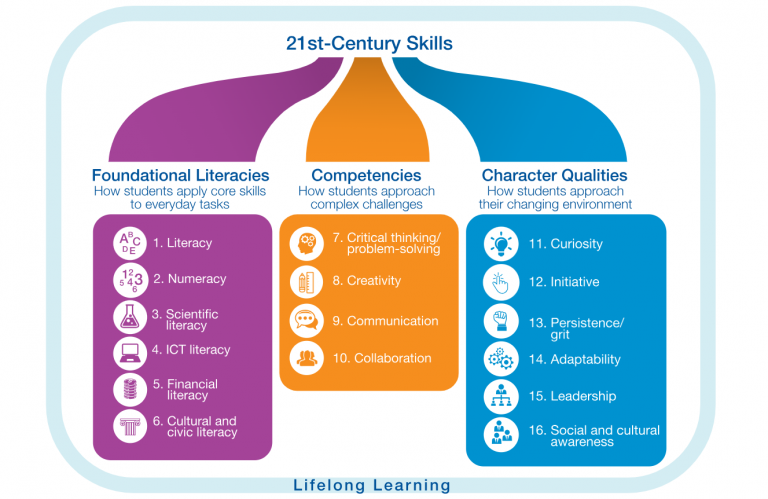Kids’ Literacy in the Digital World
We’re experiencing a profound shift as technology, society, and the environment transform the way we live, work, and learn. Literacy in the digital world is a hot topic. Businesses tell us that our school leavers are missing critical competencies and skills for the future, and that they are not being taught in schools. So, what can we do about it?
In this post, I explore how and why I think the system needs to change and the role parents can play in the face of an educational system that is slow to respond.
The Evolving Educational Landscape
Every day, there are more and more globally emerging trends that our children must grapple with.
- Artificial intelligence (AI) and automation are throwing both opportunities and challenges at us, especially when it comes to human creativity, problem-solving, and working together.
- The digital revolution and globalisation are making the whole world a classroom with everything going online. Learning resources and opportunities are everywhere, making education more accessible and diverse.
- The world is getting more complex and unpredictable. Learners need to be quick on their feet, ready to handle rapid changes and navigate through uncertainty and risk.
- Lastly, there are big issues like climate change, inequality, and human rights. Learners need to understand the world. Empathy, responsibility, and civic engagement are also for kids, not just for grown-ups. 💚
These trends are challenging the traditional UK education system, the system that’s all about standardised assessments and putting heavy emphasis on memorisation, repeating facts, and individual performance. What’s even worse is that these assessment methods seem to promote a ‘me-first’ mentality: chasing attention, competition, and a need to be first. What’s more, research suggests that this can lead to bullying and exclusion for those at both the top and the bottom of the academic ladder1.
Kids’ Literacy in the Digital World
Business leaders at the World Economic Forum (WEF) have defined the critical skills needed to succeed in the 21st Century2 – and, bad luck parents, our current system is not geared up to equip young learners with the competencies they need to succeed.
Trust me, this isn’t as complicated as it looks. I explain it further here.
You don’t even need to take the WEF’s word for it. In the UK, our own teachers and educational leaders are raising their voices in alarm stating loudly and clearly that ‘the current education system is too focused on qualifications at the expense of broader aims, and thereby is falling significantly short in preparing young people to thrive in the 21st century.’3
Rethinking Education
To prepare our kids for the future, we need to rethink the education system, shifting away from a one-size-fits-all approach to a more personalised one. There are some key ingredients that educators believe are required to make the shift:
- Learner-Centred: Children’s interests and needs should be the map in their learning journey.
- Tech-Enabled: Learners should embrace the digital age, and be provided with a network of resources and opportunities through technology advancements. More on this in future posts!
- Project-Based: Students should be engaged in real-world projects that make a difference and unleash their creativity rather than be pumped with knowledge.
- Competency-Driven: Skills should be assessed – not kids’ ability to memorise information.
Many schools are introducing some of these ingredients, and there are some interesting educational trailblazers from which to take inspiration. Unfortunately though, changing an entire system is neither easy nor cheap.The bottom line is ‘Education is Hard’!
The Role of Parents

With the squeeze on public spending, the struggle to recruit teachers, the increasing cost of private schooling and the glacial pace of educational change, parents must step up. We cannot afford to be spectators in our children’s education. We have to support them by being:
- Lifelong Learners: Stay curious, update your skills, and explore new perspectives.
- Mentors and Coaches: Guide them and support their passions.
- Advocates and Changemakers: Work with teachers, volunteer at schools, become a school governor or trustee, engage with educational organisations.
It might sound like an impossible task, but as parents in this brave new world we have little option if we don’t want ourselves and our children to be left behind by the digital wave. And hey, we can try to have a bit of fun in the process!


